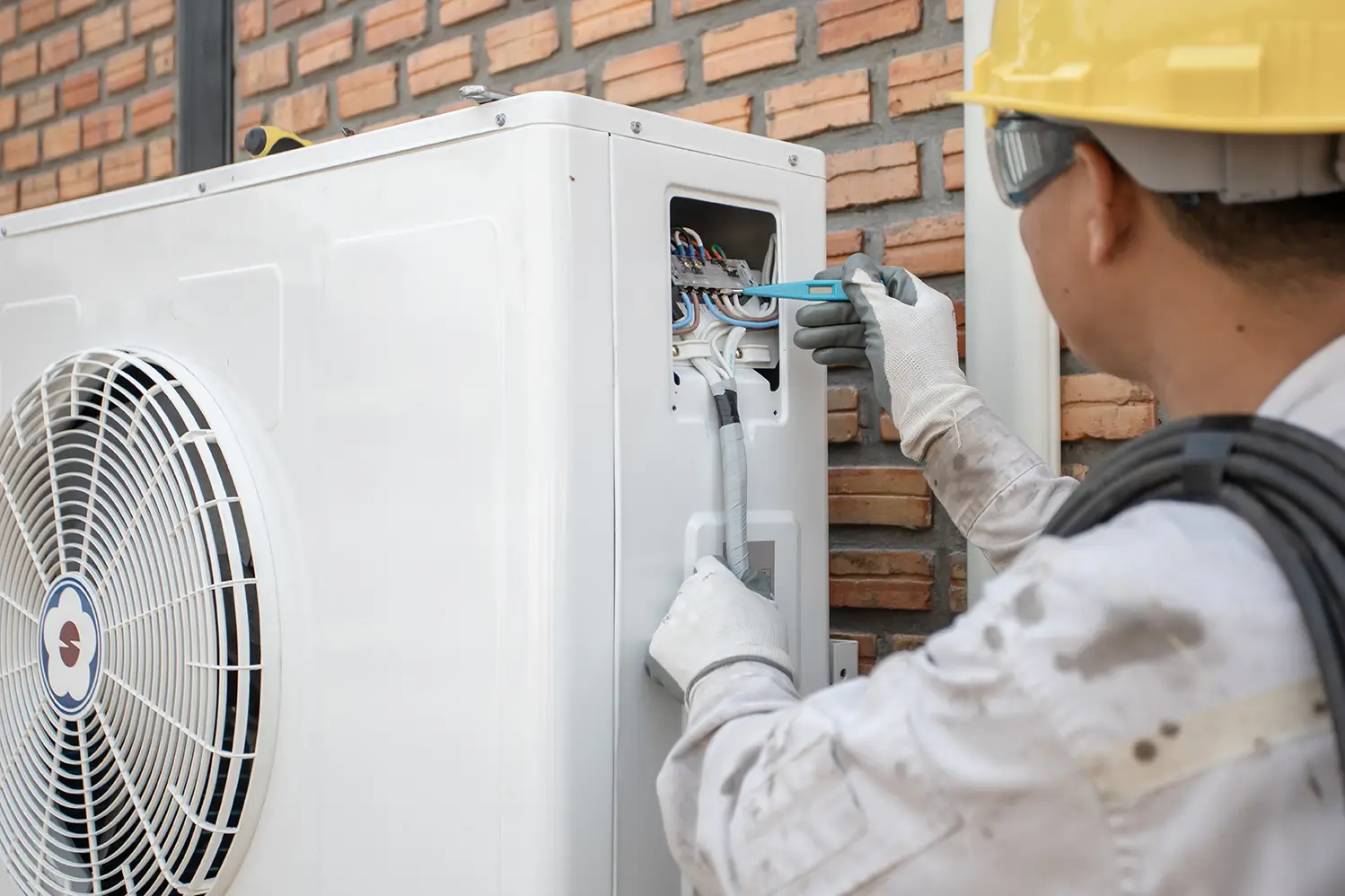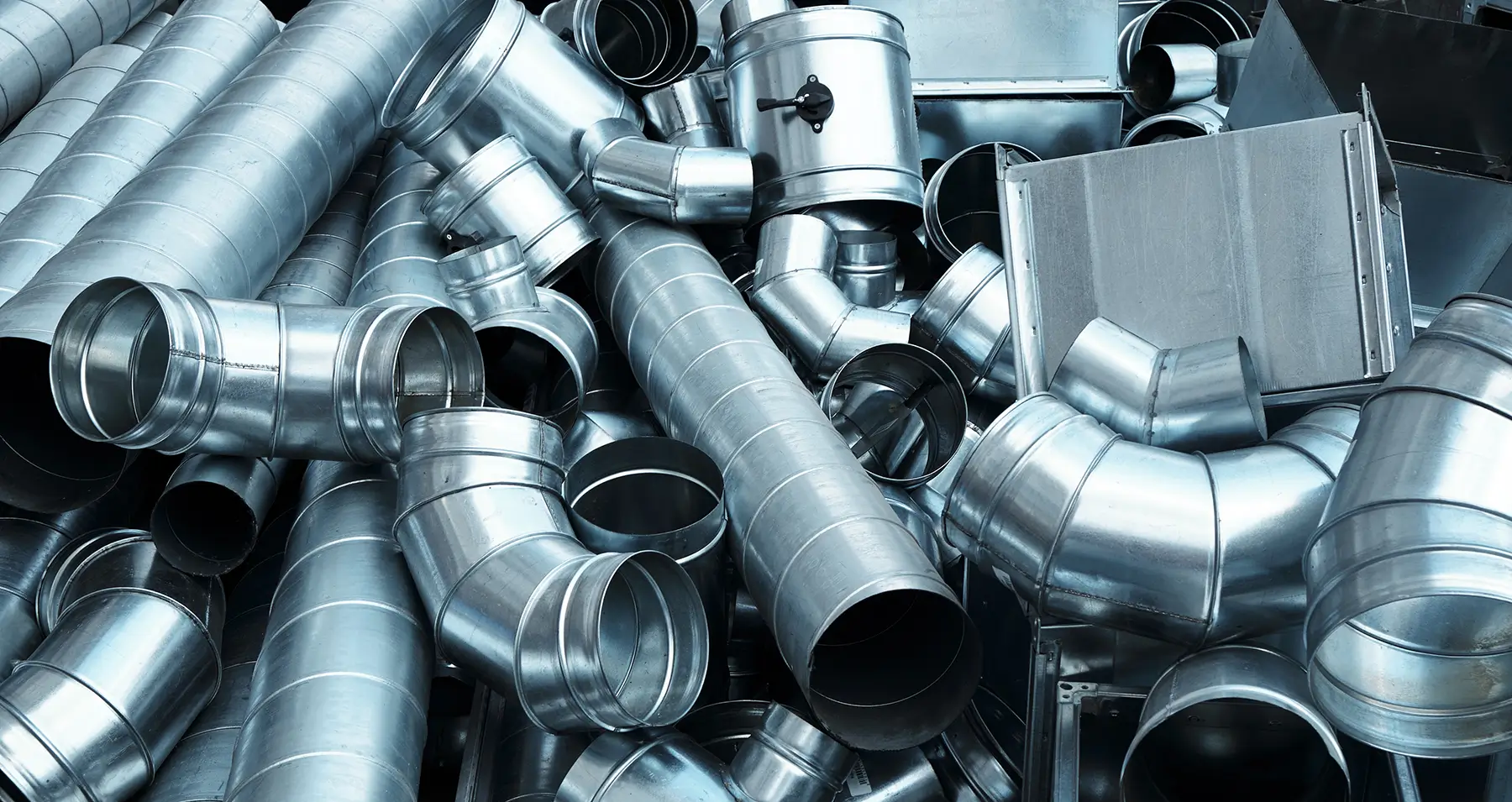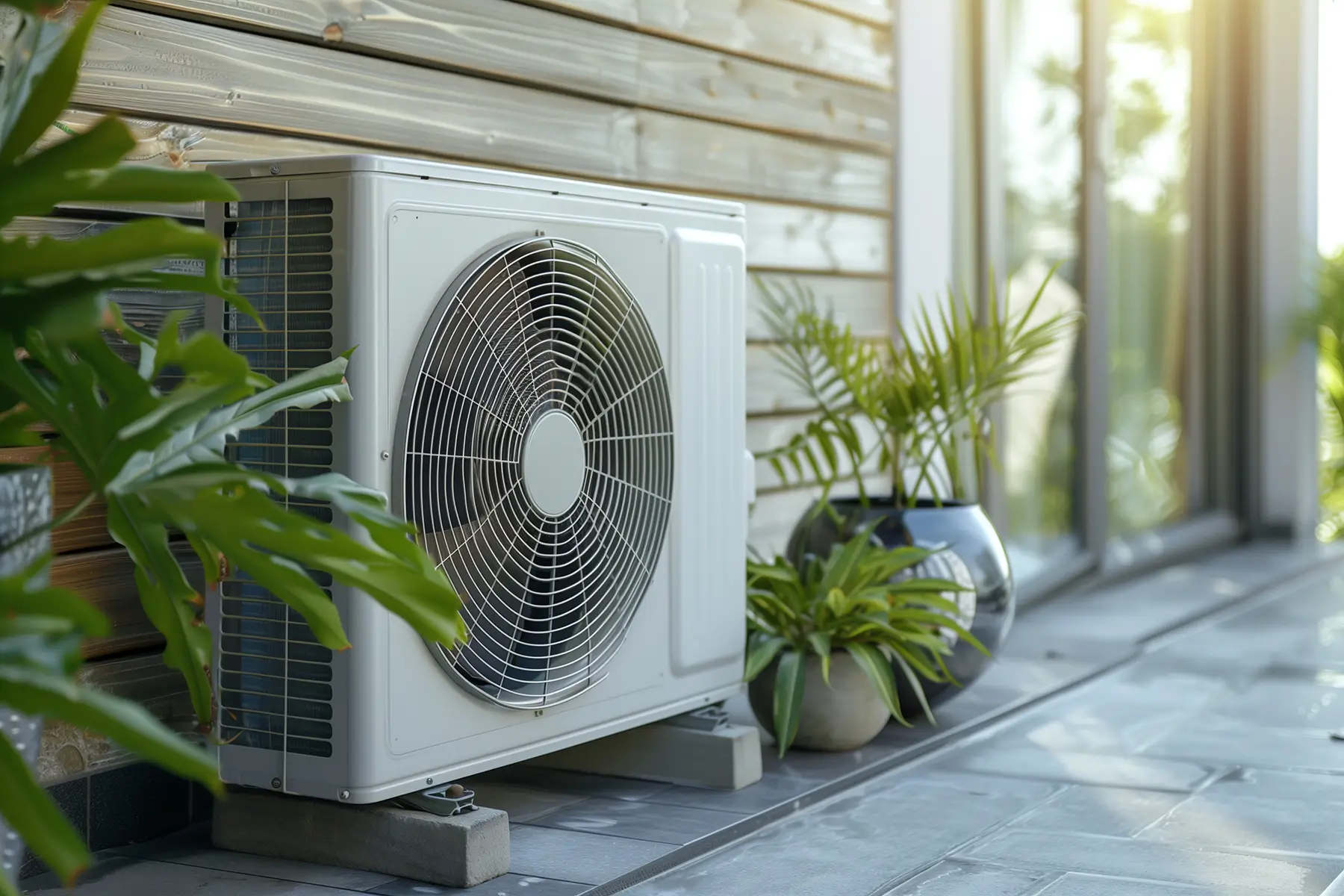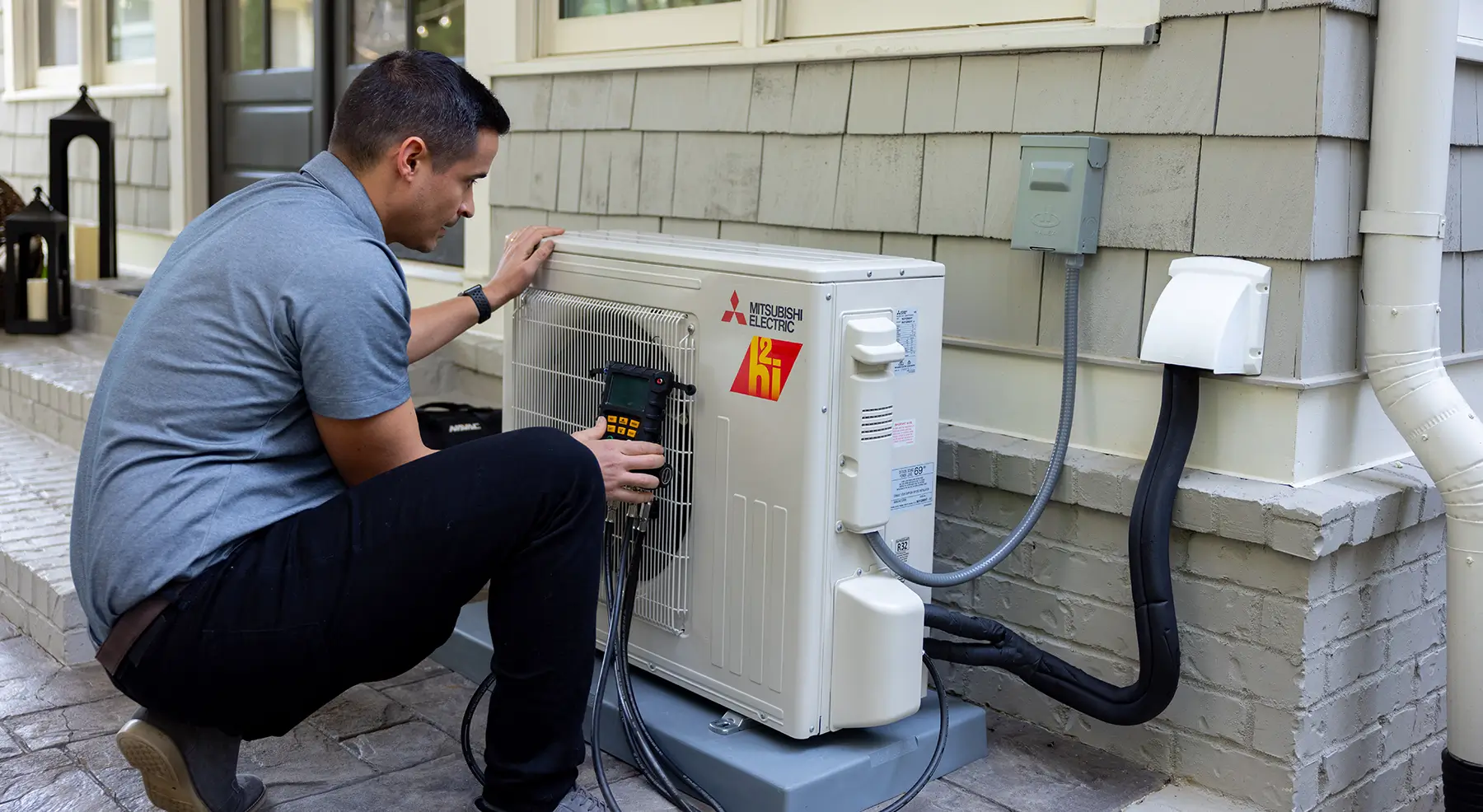Allergies can turn comfortable spaces into challenging environments, with dust, pollen, pet dander, and mold spores triggering everything from mild discomfort to severe reactions. Ductless heat pumps, or mini-splits, stand out as a potential ally for those battling indoor allergens. By transferring heat indoors and outdoors without extensive ductwork, ductless systems reduce the spread of airborne particles, unlike conventional HVAC systems that can circulate allergens through ducts.
These systems are not just about allergy relief; they’re known for energy efficiency, cost-effectiveness, and precise temperature control. However, the main advantage for allergy sufferers is their advanced filtration features, which capture allergens and provide a cleaner indoor environment. This article explores how ductless heat pumps can improve indoor air quality, addressing common concerns and questions about their effectiveness against allergies and providing insight into their operation and maintenance for optimal health benefits.
Table of Contents
Understanding Ductless Heat Pumps and Allergy Reliefs
Ductless heat pumps, distinguished by their ability to operate without the extensive ductwork typical of traditional HVAC systems, offer a unique advantage in the fight against indoor allergens. By minimizing air circulation between rooms, these systems inherently prevent the widespread distribution of dust, pollen, and other allergens. This characteristic is crucial for allergy sufferers seeking to maintain a clean indoor air environment.
A key feature of many mini-split systems is their advanced air filtration capabilities. Unlike standard HVAC filters, which may only trap larger particles, ductless systems can be equipped with filters designed to capture finer allergens. This level of filtration is akin to what one might expect from a standalone air purifier, making ductless heat pumps a dual-purpose solution for temperature control and air quality improvement.
The efficiency of ductless systems extends beyond air filtration. Their design allows for targeted heating and cooling, reducing energy consumption and limiting the movement of allergens by confining air treatment to specific areas. This targeted approach is particularly beneficial for individuals with allergies, as it reduces the overall presence of allergens in living space.
Making the Choice: Ductless Heat Pumps for Allergy Relief
When considering the impact of ductless heat pumps on allergies, it’s evident that their design and technology offer a robust solution for improving indoor air quality. The combination of reduced air circulation of allergens, advanced filtration capabilities, and the ability to maintain optimal humidity levels creates an environment where allergy sufferers can experience significant relief.
For those contemplating the installation of a ductless heat pump, the decision largely hinges on individual needs and specific allergy triggers. The system’s ability to provide targeted heating and cooling, along with advanced air filtration, positions it as a top choice for those prioritizing air quality in their living spaces. However, the effectiveness of a ductless heat pump in alleviating allergy symptoms can be maximized with the proper practices:
1. Regular Maintenance: It is crucial to ensure the unit is cleaned and filters replaced according to the manufacturer’s recommendations. This prevents the accumulation of dust, mold, and other allergens that could compromise air quality.
2. Proper Installation: Professional installation by a certified HVAC technician is essential. Incorrect installations can lead to moisture and air quality issues that negate the heat pump’s benefits.
3. Selection of Suitable Filters: Opting for models that accommodate HEPA filters or those with equivalent filtration efficiency can further enhance the system’s ability to purify indoor air from allergens.
4. Consider Additional Air Purification: In areas with high levels of pollution or for individuals with severe allergies, complementing the ductless heat pump with a standalone air purifier can provide an added layer of air quality protection.
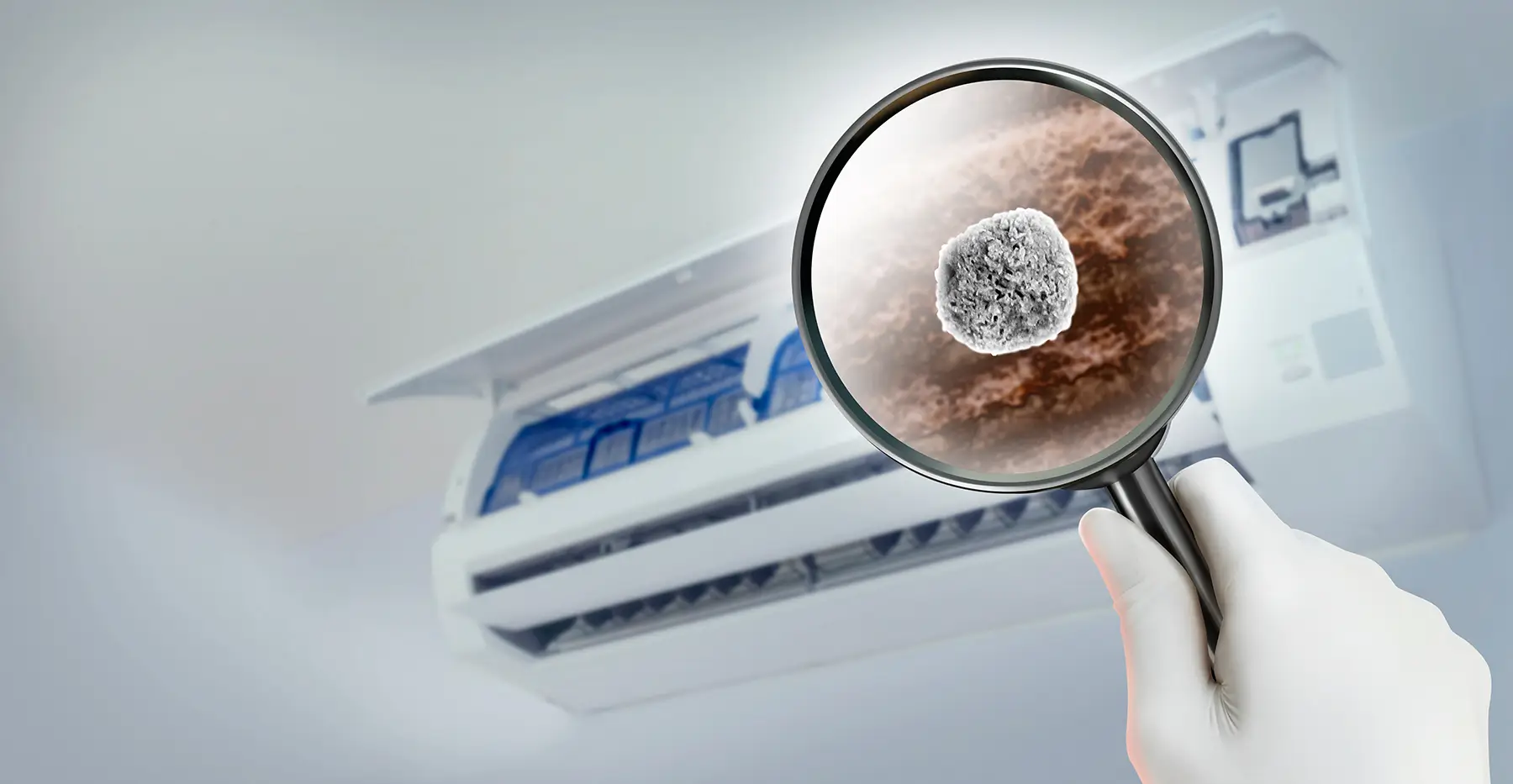
FAQs on Ductless Heat Pumps and Allergies
Do Ductless Mini Splits Reduce Allergies?
Ductless mini splits can significantly reduce allergies by limiting the spread of airborne allergens. Their advanced filtration systems capture many particles, including pollen, dust, and dander, common triggers for allergy sufferers.
Can Heat Pumps Worsen Allergies?
Properly maintained heat pumps should not worsen allergies. Because they minimize air circulation between different areas, they can help reduce exposure to allergens. Regular cleaning and filter replacement are crucial to maintaining these benefits.
Are There Health Risks with Mini Splits?
The primary health risk associated with mini splits arises from neglecting maintenance. Mold and bacteria can accumulate in units that are not regularly cleaned, potentially worsening air quality. Adhering to a regular maintenance schedule mitigates these risks.
How Do Heat Pumps Help with Allergies?
Heat pumps help with allergies by maintaining a stable indoor temperature and humidity level, which can help reduce the proliferation of dust mites and mold spores. Their filtration systems further clean the air of allergens.
What Heating System is Best for Allergy Sufferers?
Ductless heat pumps are among the best options for allergy sufferers due to their advanced filtration capabilities and the reduced circulation of allergens. They provide a clean, controlled indoor environment conducive to allergy relief.
Do Ductless Systems Include HEPA Filters?
While not all ductless systems come with HEPA filters, many are compatible with them or have similar high-efficiency filtration options. For optimal air quality, it’s important to check specific model capabilities and filter options.
Benefits Beyond Allergy Relief
Ductless heat pumps offer several benefits beyond allergy relief, including energy efficiency, lower operating costs, and the flexibility to heat or cool specific zones within a home, enhancing overall comfort.
Who Might Reconsider Heat Pumps?
Individuals living in extremely cold climates where temperatures frequently drop below the operational range of a heat pump might need alternative or supplementary heating solutions. Consulting with an HVAC professional can provide guidance based on specific needs and conditions.
Is an Air Purifier Needed with a Heat Pump?
While ductless heat pumps filter many allergens, individuals with severe allergies or those living in areas with high pollution levels might benefit from an additional air purifier for enhanced air quality.
Summary
In conclusion, ductless heat pumps are a compelling option for allergy sufferers seeking to improve their indoor living environment. By understanding and leveraging the benefits of these systems and adherence to maintenance best practices, homeowners can create a more comfortable and healthier indoor space free from the pervasive influence of allergens.

